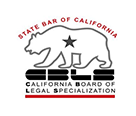The hopes of pursuing a law enforcement career in California were dashed for an American Samoan man when he was informed that he did not meet the U.S. citizenship requirement. The man subsequently filed a lawsuit that sought to see those who are born in an unincorporated American territory like American Samoa granted the same citizenship rights as those born in Puerto Rico, but the U.S. Court of Appeals for the District of Columbia Circuit preserved the current law in a June 5 ruling.
Federal law require individuals born in American Samoa to travel to the United States and establish residency for at least three months before they may apply for naturalization, but critics of the rules say that this effectively places citizenship in most cases impossible to obtain for the island’s poorer residents. American Samoa became a U.S. territory in 1956 and is home to approximately 56,000 people.
While many American Samoans may be disappointed with the three-judge panel’s interpretation of the U.S. Constitution’s 14th Amendment, government officials on the island are unlikely to be among them. The island’s government has objected to measures that would grant automatic U.S. citizenship to those born in the territory to protect local customs. Officials also want to preserve rules that limit land ownership to those of Samoan ancestry.
Naturalization allows an individual to hold a U.S. passport, serve on a jury and vote in federal elections, but this path to citizenship is often complex and confusing. An experienced immigration attorney could help those seeking naturalization by explaining the strict deadlines and documentation requirements involved and assisting them with their applications. An attorney could also provide representation in a subsequent appeals hearing when an application for naturalization is denied.




